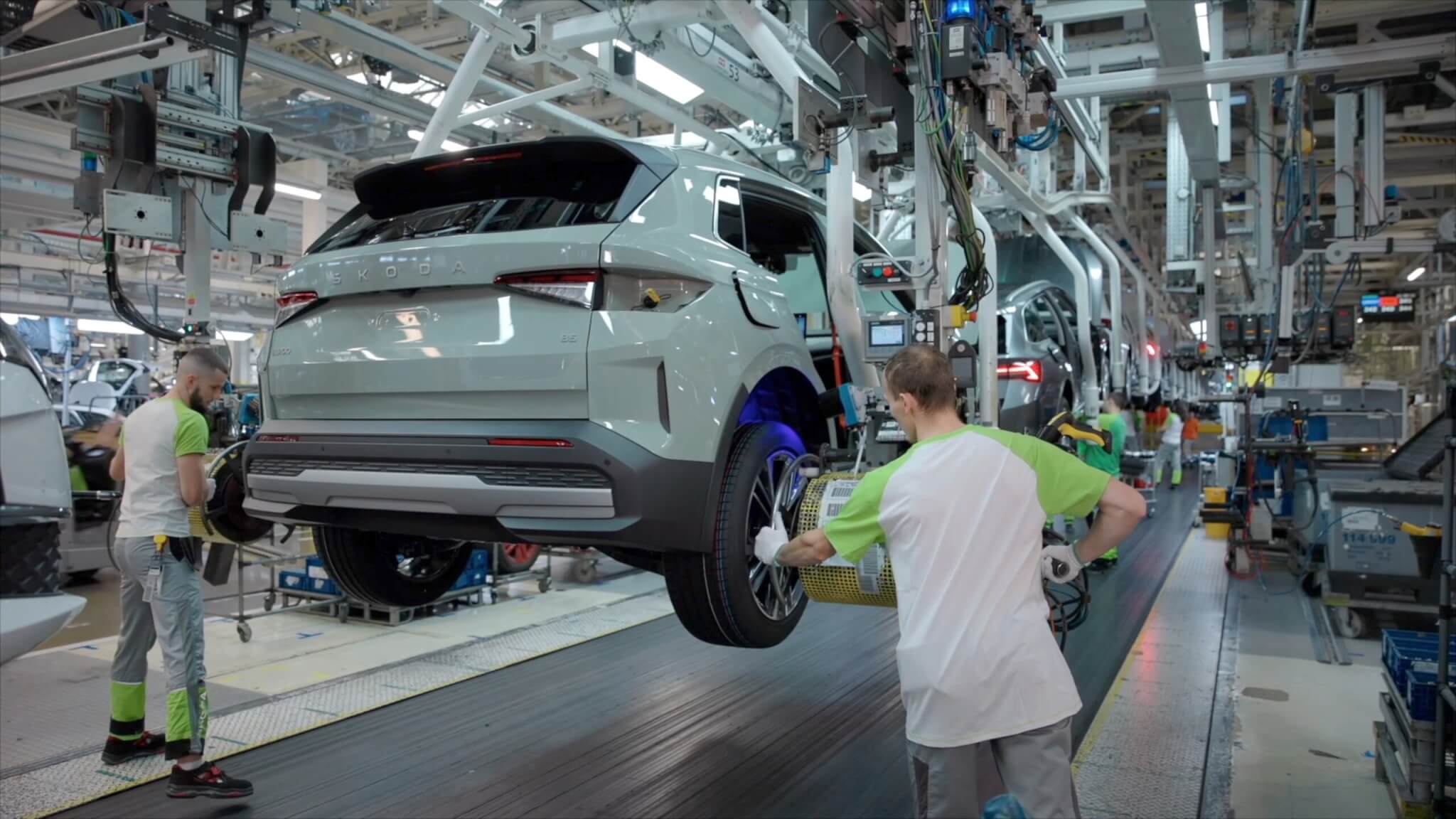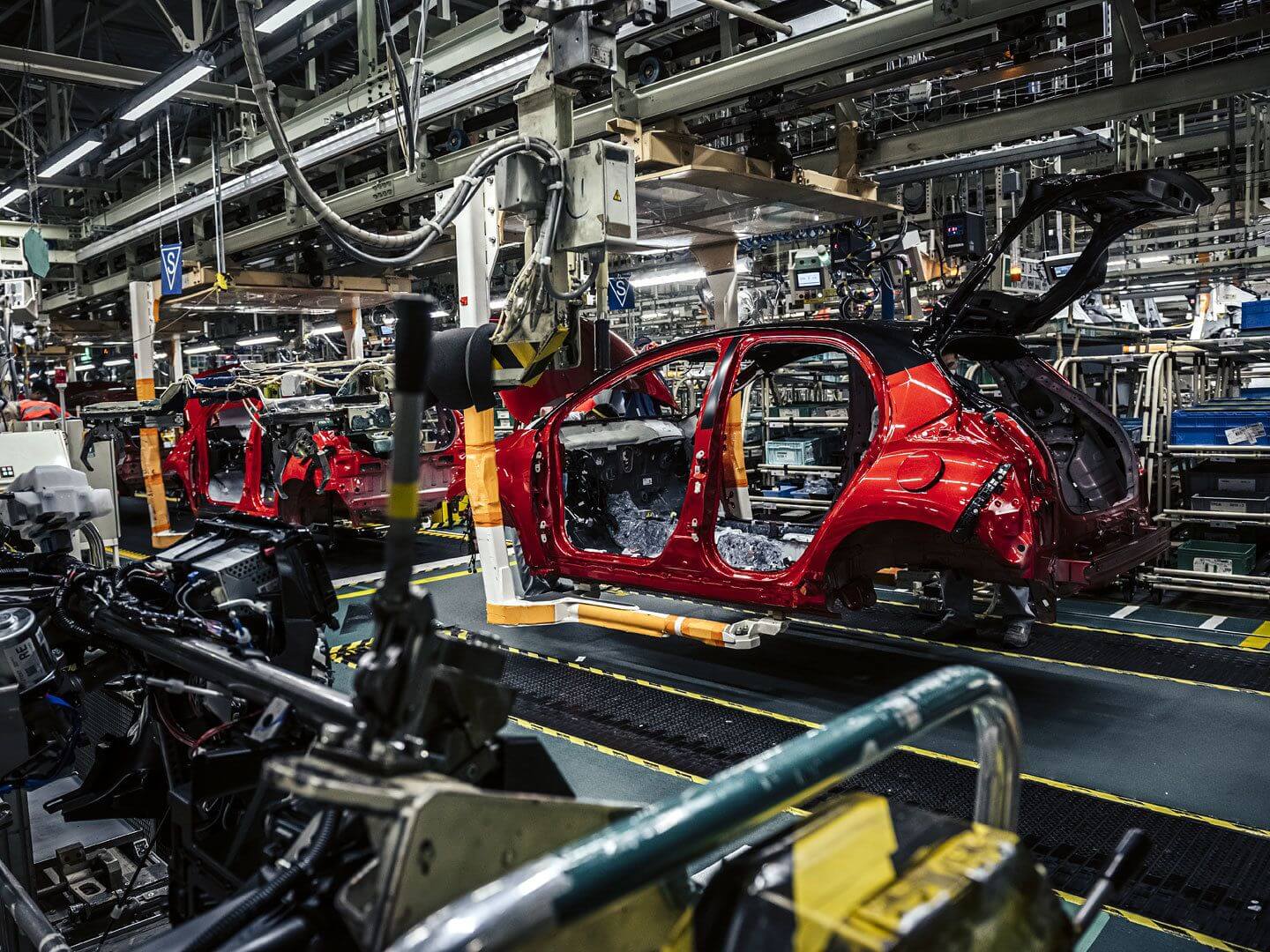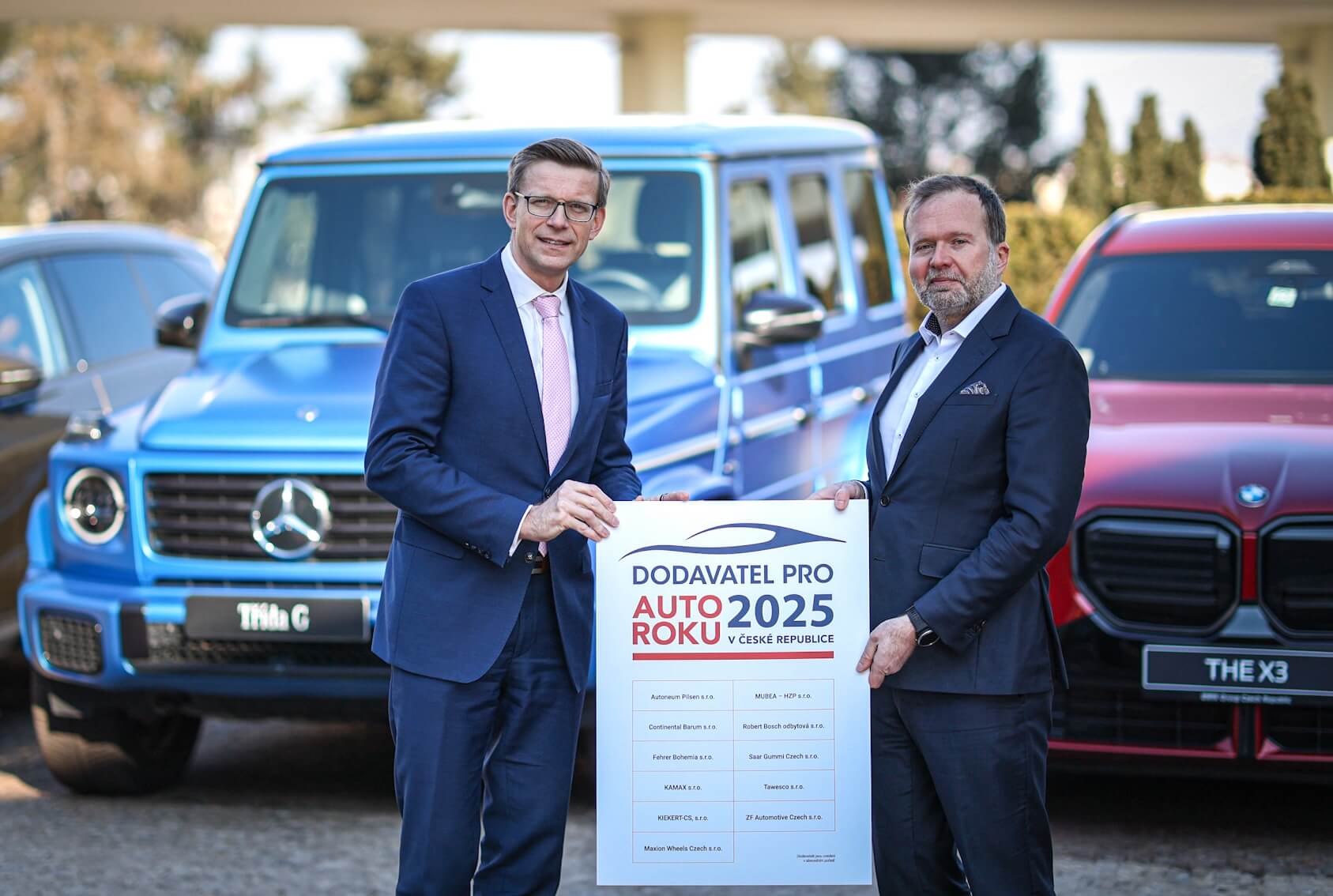Transport Minister Martin Kupka and the Association of the Automotive Industry (AutoSAP) are working together to adjust the current CO2 emission limits for cars and vans. It shows that Europe needs a systematic change towards decarbonisation and needs to respond more flexibly to the current state of the industry and market developments. We see this as crucial to strengthening the competitiveness of Europe and Czech companies, reducing strategic dependence on China and, not least, maintaining jobs in the sector and ensuring affordable individual mobility for all. The main requirement of the Czech Republic is an emphasis on technological neutrality, i.e. openness to all available options for decarbonising transport. At the same time, changes to the regulation need to be adopted that avoid counterproductive penalties as early as 2025 – these were approved in 2019, but would be completely ineffective at the current time when one of Europe’s most strategically critical industries is struggling with a loss of competitiveness. On the contrary, mechanisms need to be put in place that take account of the current evolution of markets, production conditions and infrastructure. Therefore, the Czech Republic will seek an early revision of the regulation and a rationalisation of the targets set, including an assessment of the feasibility of the so-called ban on internal combustion engines in 2035. We will pursue the same approach when revising the emission targets for heavy goods vehicles. The Czech Republic’s aim is to gain support for such an approach across European countries. In this respect, we plan to approach our partners with a proposal for a joint declaration, which would then be sent to the European Commission.

Transport Minister Martin Kupka says: “Building on our previous activities in the area of realistic and feasible greening of transport and preserving its accessibility, I have decided, in cooperation with the Association of the Car Industry, to address the Ministers of the Member States to support the need to accelerate the revision of the limits. Together, we will do everything we can to ensure that we do not have to think about factory closures and job losses at home, as well as the loss of individual mobility.”
Minister Kupka emphasises that the automotive industry is a key sector of the domestic and European economy. It is therefore essential that the approach to meeting the targets is not only environmentally but also economically sustainable, allowing for investment in innovation and fleet renewal.
 Martin Jahn, President of AutoSAP and member of the Board of Directors of Škoda Auto, adds: “The first step to maintaining a strong automotive industry in the Czech Republic is to quickly address the leap in emissions targets from 2025. Under current market conditions, it is virtually impossible to meet these targets, which would lead to massive penalties in the hundreds of billions of crowns for car manufacturers. This would only further weaken its position vis-à-vis global competitors and at the same time drain resources for further necessary investments in its transformation. This is why an early revision of the CO2 targets is essential.”
Martin Jahn, President of AutoSAP and member of the Board of Directors of Škoda Auto, adds: “The first step to maintaining a strong automotive industry in the Czech Republic is to quickly address the leap in emissions targets from 2025. Under current market conditions, it is virtually impossible to meet these targets, which would lead to massive penalties in the hundreds of billions of crowns for car manufacturers. This would only further weaken its position vis-à-vis global competitors and at the same time drain resources for further necessary investments in its transformation. This is why an early revision of the CO2 targets is essential.”
Zdeněk Petzl, Executive Director of AutoSAP, also points to the need for a systemic approach to the transformation of the industry. In pursuing the goals of green transformation, it is important to take into account the real opportunities and challenges that automakers currently face and to set regulations in a way that supports not only decarbonisation but also stability and growth in the sector.
 Zdeněk Petzl, Executive Director of AutoSAP, emphasizes, “We very much appreciate the support of Minister Kupka. We stand at a critical crossroads where much more is at stake than percentages of emission targets – it is about jobs, the preservation of a strong automotive industry in the Czech Republic and the strategic independence of Europe. If we are serious about reducing emissions, we need to create competitive conditions for industry and address key challenges such as high energy prices, excessive regulatory burdens and the almost non-existent European supply chain for electric mobility.”
Zdeněk Petzl, Executive Director of AutoSAP, emphasizes, “We very much appreciate the support of Minister Kupka. We stand at a critical crossroads where much more is at stake than percentages of emission targets – it is about jobs, the preservation of a strong automotive industry in the Czech Republic and the strategic independence of Europe. If we are serious about reducing emissions, we need to create competitive conditions for industry and address key challenges such as high energy prices, excessive regulatory burdens and the almost non-existent European supply chain for electric mobility.”
The Ministry of Transport and the Czech automotive industry stress that they are ready to actively contribute to climate protection, as they have done so far. However, this requires a stable and competitive environment and the provision of conditions that will enable realistic targets to be met in practice in the long term.
Background
In 2019, the Council and European Parliament approved a regulation setting CO2 performance limits for new passenger cars and new light commercial vehicles (vans) for 2025 and 2030. Following the more ambitious climate targets of the Union adopted by the European Council in 2020, a revision of this Regulation was adopted in 2023, modifying the 2030 target and adding a 2035 target.
The European Commission is expected to submit a report to the European Parliament and the Council by 31 December 2025, most likely followed by a legislative review in 2026 through the ordinary legislative procedure (usually taking 12-18 months). Given the critical state of the automotive industry, the launch of the review cannot wait until 2026.
Contact
Next press
Lower quarterly production, record month for EV production
In the first quarter, a total of 372,334 road vehicles were produced by domestic automotive companies, down 7% year-on-year. The largest part of the production was passenger cars, which rolled off the production lines at 366,510 units, followed by 1,321 buses, 277 trucks, 169 motorcy


 Martin Jahn, President of AutoSAP and member of the Board of Directors of Škoda Auto, adds: “The first step to maintaining a strong automotive industry in the Czech Republic is to quickly address the leap in emissions targets from 2025. Under current market conditions, it is virtually impossible to meet these targets, which would lead to massive penalties in the hundreds of billions of crowns for car manufacturers. This would only further weaken its position vis-à-vis global competitors and at the same time drain resources for further necessary investments in its transformation. This is why an early revision of the CO2 targets is essential.”
Martin Jahn, President of AutoSAP and member of the Board of Directors of Škoda Auto, adds: “The first step to maintaining a strong automotive industry in the Czech Republic is to quickly address the leap in emissions targets from 2025. Under current market conditions, it is virtually impossible to meet these targets, which would lead to massive penalties in the hundreds of billions of crowns for car manufacturers. This would only further weaken its position vis-à-vis global competitors and at the same time drain resources for further necessary investments in its transformation. This is why an early revision of the CO2 targets is essential.” Zdeněk Petzl, Executive Director of AutoSAP, emphasizes, “We very much appreciate the support of Minister Kupka. We stand at a critical crossroads where much more is at stake than percentages of emission targets – it is about jobs, the preservation of a strong automotive industry in the Czech Republic and the strategic independence of Europe. If we are serious about reducing emissions, we need to create competitive conditions for industry and address key challenges such as high energy prices, excessive regulatory burdens and the almost non-existent European supply chain for electric mobility.”
Zdeněk Petzl, Executive Director of AutoSAP, emphasizes, “We very much appreciate the support of Minister Kupka. We stand at a critical crossroads where much more is at stake than percentages of emission targets – it is about jobs, the preservation of a strong automotive industry in the Czech Republic and the strategic independence of Europe. If we are serious about reducing emissions, we need to create competitive conditions for industry and address key challenges such as high energy prices, excessive regulatory burdens and the almost non-existent European supply chain for electric mobility.”







